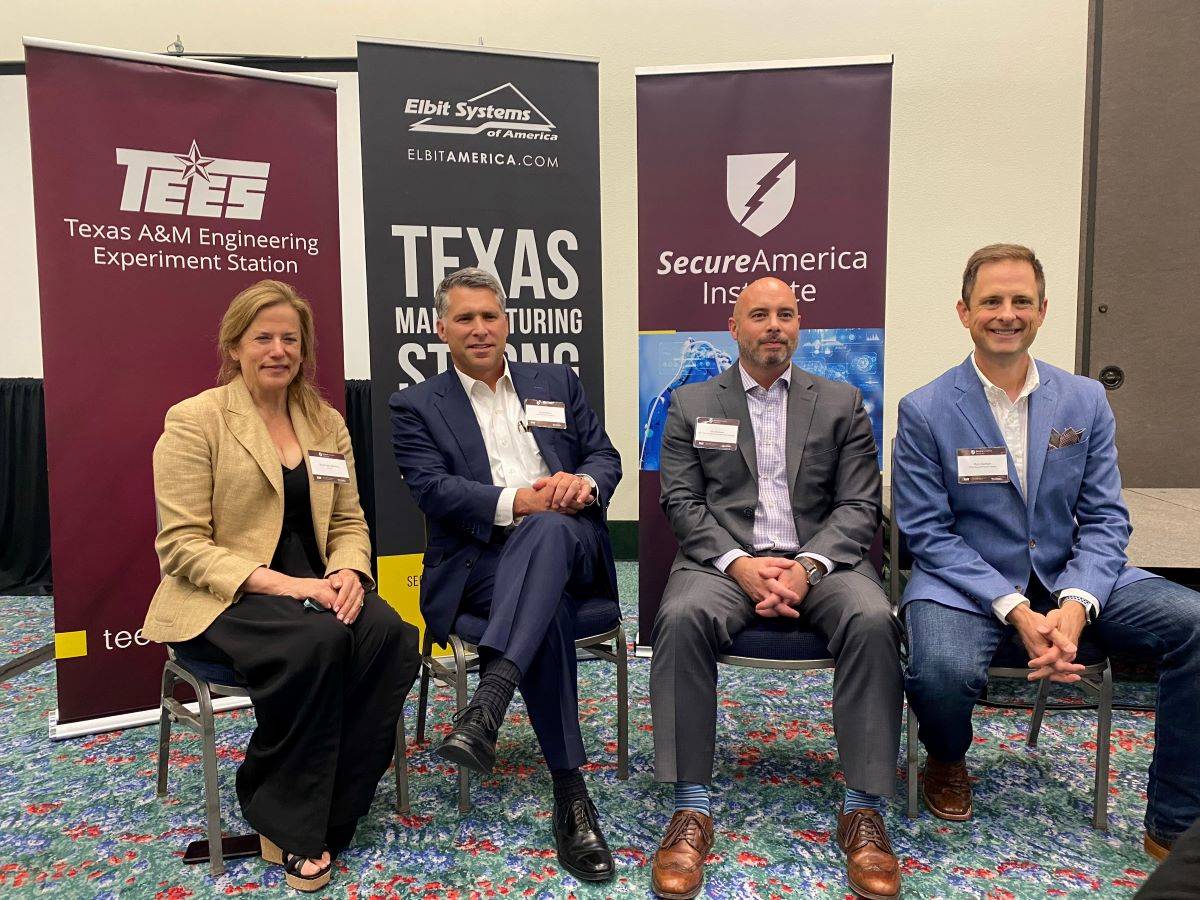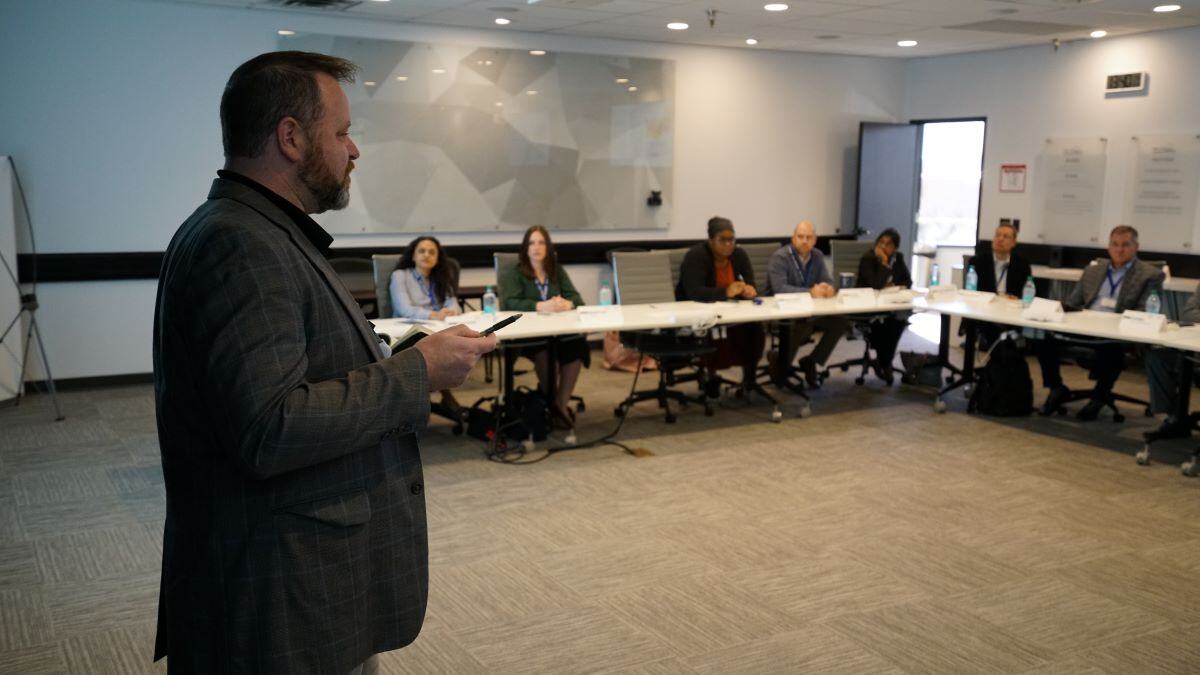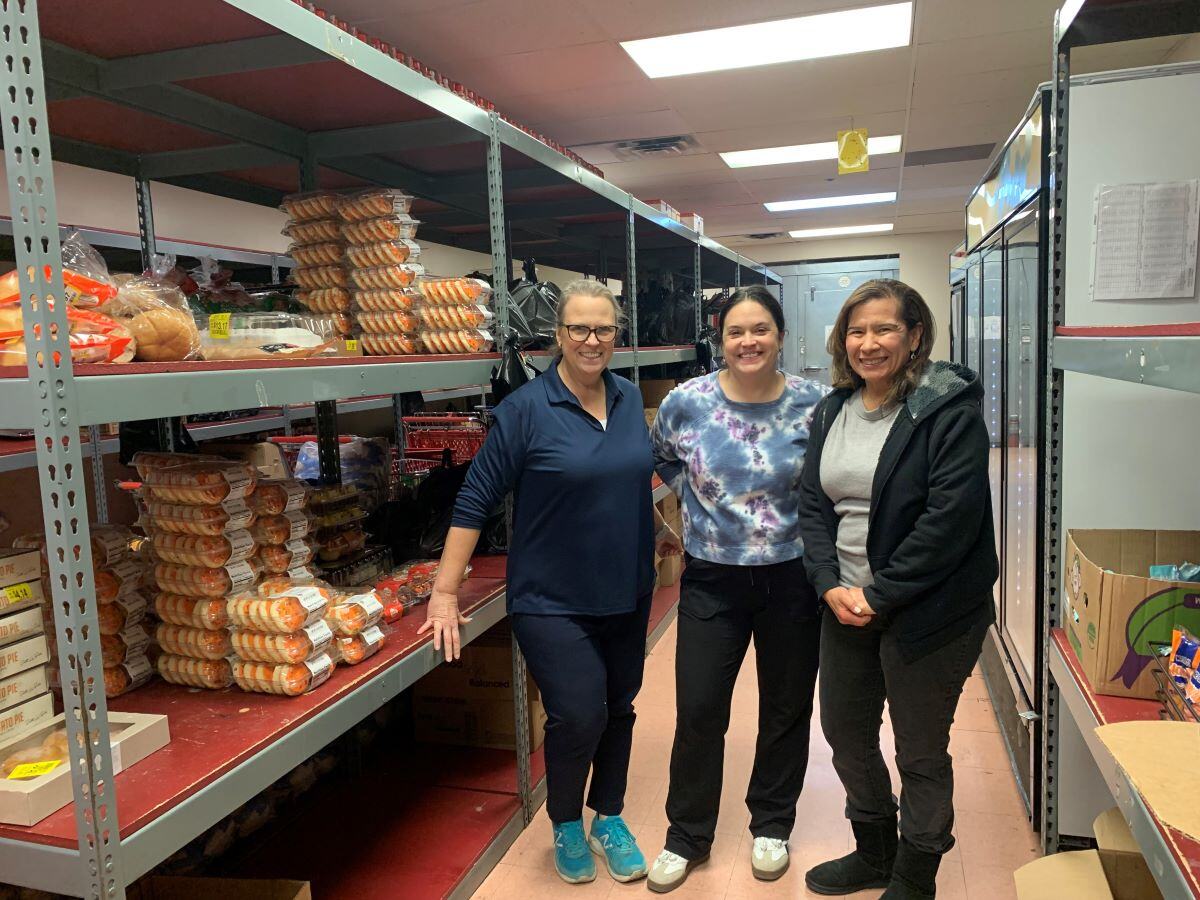Roughly 100 participants gathered from across the region to hear how Texas can contribute to national defense and economic strength through robust supply chains and domestic manufacturing on May 9, 2022. This occurred at the first-ever Texas Manufacturing Renaissance Conference, sponsored by Elbit Systems of America (Elbit America) and the SecureAmerica Institute of Texas A&M University (TAMU).
The conference was comprised of several presentations and panel discussions. Key to the event was the U.S. Manufacturing Competitiveness and the Role of Texas panel that included Scott Baum, Elbit America’s Vice President of Strategy and Growth.
Baum’s remarks were centered on Elbit America’s commitment to ignite skills training and certifications for those who hope to enter or advance within the manufacturing industry of Texas.
Impressed with a curriculum developed by Auburn University, Baum set-out to bring that curriculum to Texas. This coursework will result in certifications through the TAMU system, allowing new technicians to gain a robust skillset, and quick entry into the booming Texas manufacturing industry.
“If we don’t roll our sleeves up and work alongside workforce training, it’s not going to happen,” Baum said. “We recognize, for our business, there’s a tremendous skills gap at the technician or trade-skill level.”
Texas is both home to Elbit America but it is also is a major hub of manufacturing for the company, so filling its career pipeline with skilled technicians is key to the company’s future. By partnering with TAMU, a public land-grant research institution, the company can depend on the university’s size and scale to reach across the state of Texas, using this curriculum to train future areo-space & defense works across various communities.
According to the Texas Regional Manufacturing Overview, Texas has a robust manufacturing economy. The sector directly employed more than 900,000 Texans and contributed $241 billion to the state’s gross domestic product in 2019.
To ensure long-term sustainability, especially in the face of the COVID-19 pandemic, supply chain disruptions, and an aging industry workforce, manufacturers like Elbit America must be proactive, ensuring they have skilled employees in the future.
“We have to DO,” said Baum. Emphasizing that scaling up workforce training now is essential.
By helping to bring this curriculum to Texas, Elbit America is doing its part to fill critical manufacturing positions now and in the future.
“Governments and academia are looking at us (the industry) to lead, and we at Elbit America are doing just that, leading” Baum said.
Executive Director of Manufacturing Initiatives for Texas A&M Engineering Experiment Station & Executive Director of the SecureAmerica Institute Rob Gorham, echoed Baum’s remarks, adding that it takes the response of a whole community to enact change. For this challenge, the goal is to reinforce the nearly 1 million manufacturing employees in Texas. The new wave of skilled, well-paid Texans can then thrive in their communities, contribute to the economic future of Texas, and to that of the country.
Scaling up workforce training has been a goal for the United States manufacturing base for some time, but it was singled-out as a top recommendation in a recent report created by the Task Force on National Security and U.S. Manufacturing Competitiveness, of which Elbit America President & CEO Raanan Horowitz is a member.
The report, “A Manufacturing Renaissance: Bolstering U.S. Production for National Security and Economic Prosperity,” laid out plainly that employers’ roles in workforce training should expand, while they should also commit to employing hundreds of thousands of new, credentialed workers over the next decade.
Companies have to change traditional approaches and become more flexible. Employees want the ability to work, while getting additional training. They want hybrid work, competitive wages, and companies have to adjust accordingly.
“You cannot be a competitive company today and not be a part of these conversations,” he said. “We are absolutely committed to growing Texas manufacturing and being a good partner.”








